Search Results
Showing results 1061 to 1080 of 2089
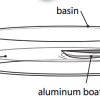
Boats Afloat
Source Institutions
In this activity, learners discover what buoyancy is and determine the characteristics that make an object buoyant. Learners design, build, test, and evaluate boats made from a variety of materials.
Quick Questions: Learn About Data
Source Institutions
In this activity, learners will collect and analyze data to learn about the people around them. How many letters in everyone’s first name? What’s the most common number of letters?
Press Seaweed
Source Institutions
In this activity, learners will collect, dry and press seaweed over the course of four days in a similar way that artists/crafters press flowers.
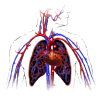
Circulatory System Skit: Act out the Flow of Blood
Source Institutions
In this activity, learners act out the flow of blood in the human body! A great way to get learners up and moving while learning about the circulatory system.
Windmills
Source Institutions
In this physics activity (page 8-9 of the PDF), learners will explore wind energy. They will build their own windmill and see how energy from wind can be converted into a useable form.
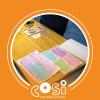
Watercolor
Source Institutions
In this activity, learners will use chemistry to create a night sky watercolor painting. They will experiment to learn the effects of mixing crayon, salt, and lemon juice with water color paints.
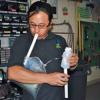
Bag Pipe
Source Institutions
In this activity, learners explore sound by constructing their very own bagpipe instrument.
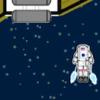
So Many Parts
Source Institutions
In this online Flash game and spacewalk mission simulation, learners are challenged to repair parts of a space station while balancing their oxygen and fuel use carefully.
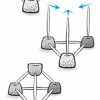
Geodesic Gumdrops: Candy and Toothpick Architecture
Source Institutions
This hands-on activity shows you how to build basic architectural shapes out of toothpicks and gumdrops.
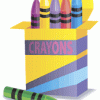
Resistance is Useful
Source Institutions
Learners write or draw with white crayon on white paper. They look and feel to detect their marks on the paper. Then, learners paint over their paper with watercolor paint.
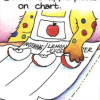
Apples with Appeal
Source Institutions
In this activity, learners investigate why apples turn brown. Learners discover that lemon juice interferes with the reaction that causes the browning.
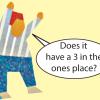
Mystery Number
Source Institutions
Combine logic and numbers in this game for all ages. Players start with a 10x10 grid of the numbers 1 to 100. One person chooses a secret number and announces the range in which it falls.

Exploring Forces: Gravity
Source Institutions
In this nanoscience activity, learners discover that it's easy to pour water out of a regular-sized cup, but not out of a miniature cup.
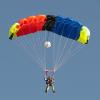
Design a Parachute
Source Institutions
After a discussion about what a parachute is and how it works, learners create parachutes using different materials that they think will work best.
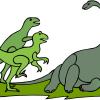
Dinosaur Count and Sort
Source Institutions
In this activity, learners sort and count different colored plastic dinosaurs by various attributes including tail length, whether or not the dinosaurs have horns, etc.
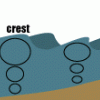
Water on the Move: Wind and Waves
Source Institutions
In this simple activity, learners explore ocean waves. To find out if water moves forward toward the shore, learners create waves in a simulated ocean (small aquarium tank of water).
Parachute Design
Source Institutions
In this activity, learners design and build their own parachute using household materials with the goal of landing their passenger safely on a target.
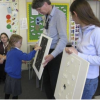
Natural Selection Because of Different Color: Camouflage
Source Institutions
In this activity (p.5-6 of PDF), learners investigate natural selection. Learners discover that natural selection, which takes place over decades, can lead to altered populations within a species.
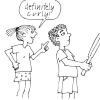
Alike and Different
Source Institutions
This activity (on pages 7-13) has pairs of learners survey an array of similarities and differences between them.
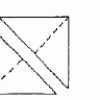
Making Tangram Pieces by Folding Paper
Source Institutions
In this math lesson, learners follow step-by-step directions for making tangram pieces out of folded and torn paper. First, learners read "Grandfather Tang's Story" by Ann Tompert.
